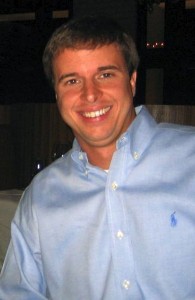
In the opening chapters of Genesis, we find the most sublime statements about God and human beings that establish our view of God, of human beings, of God’s relationship with us, and of our relationship with one another. The first three words of the Bible in Hebrew, Bereshit Bara Elohim, “in the beginning God created,” already tell the story of why we are in the world and what is expected of us. The same can be said for all the great statements of Genesis:
“And God created man—and woman—in His image”
“And God blessed the seventh day and declared it holy”
“Be fruitful and multiply and fill the earth and master it”
“Sin crouches at the door…but you can be its master”
These are just some of the statements of Genesis that echo down through the ages and continue to stir, challenge and inspire us and even shame us, or at least should. But as magnificent as are the statements, the declarations of Genesis, even more powerful, even more memorable and shattering, I dare say, are the questions of Genesis. They shatter our defenses. They challenge us even more than the statements we read in Genesis. In the questions of human beings, we see ourselves laid bare. We see things that bother us about ourselves, that should bother us about ourselves, things that we should want to improve in ourselves, but that we must first recognize about ourselves.
Of all the questions asked, the most powerful perhaps is the question, in fact the very first question that God asks of Adam and Eve, “Ayekah?” “Where are you?” Almost 2,000 years ago, our Rabbis asked: “Why did God need to ask where they were? Didn’t He already know where they were?” And the Rabbis’ teaching was that God asked this question in order that a conversation might be opened with Adam and Eve. He hoped that by engaging them in dialogue they might confess and repent of their sin, just as God later asked of Cain, “Where is your brother?”
“Where are you?” remains the ultimate question that God asks us. If we want to get fancy about it, we can say that it is God’s “existential” question; the question that God constantly asks us wherever we are, whatever we do, at this moment.
That point was made beautifully by a great Hasidic rabbi, Schneur Zalman of Liadi, who was, by the way, the first Lubavitcher rebbe of the worldwide Chabad Lubavitch movement. He was one of the earliest teachers of Hasidic rabbis; he died around 1813. At the beginning of the 19th century, he was arrested by some Russian authorities, who feared that Hasidic joy—would cause a dangerous revolution. Yet the warden enjoyed talking to his sage with the big white beard, who was obviously a scholar and a man of faith who had studied Scripture with depth and detail. The warden fancied himself an intellectual and began to ask the rabbi some questions. He said, “Tell me, I have been reading the Bible, and there are some things in it which don’t seem logical. For instance, if God is all wise and all-knowing, how is it that when Adam hides in the Garden of Eden, God has to ask: ‘Where are you?’ After all, did He not know where Adam was? Isn’t He God?”
The rabbi looked up at the warden with coal-black, burning eyes, and replied, “I shall answer your question, if you will answer mine first.” The warden agreed. The rabbi asked, “Do you believe that the Bible is eternal and that its message is intended not just for one age or one man, but rather that it is aimed at every age and every man?”
The warden said, “Yes, I suppose so.” “Well then,” said Rabbi Schneur Zalman, “in that case it means that in every age God calls to every man and woman and asks: Where are you? So many years of your allotted life on earth has gone by. What have you accomplished, and where are you going? It is as if God said to you: Warden, you are forty-six years old. Where are you?”
We are told that when the warden heard his own exact age mentioned, a shiver went down his spine, and a look of wonder and fear came into his eyes. He pulled himself together enough to smile and say to the rabbi, “That’s a good answer,” as he quickly left the cell. But every so often after that, he would awake at night and hear the question: “Where are you?”
That is the effect that the questions of Genesis, the shattering questions of God and revealing questions of people, should have on us today and every day. So today, ask yourself, “Where are you?”









